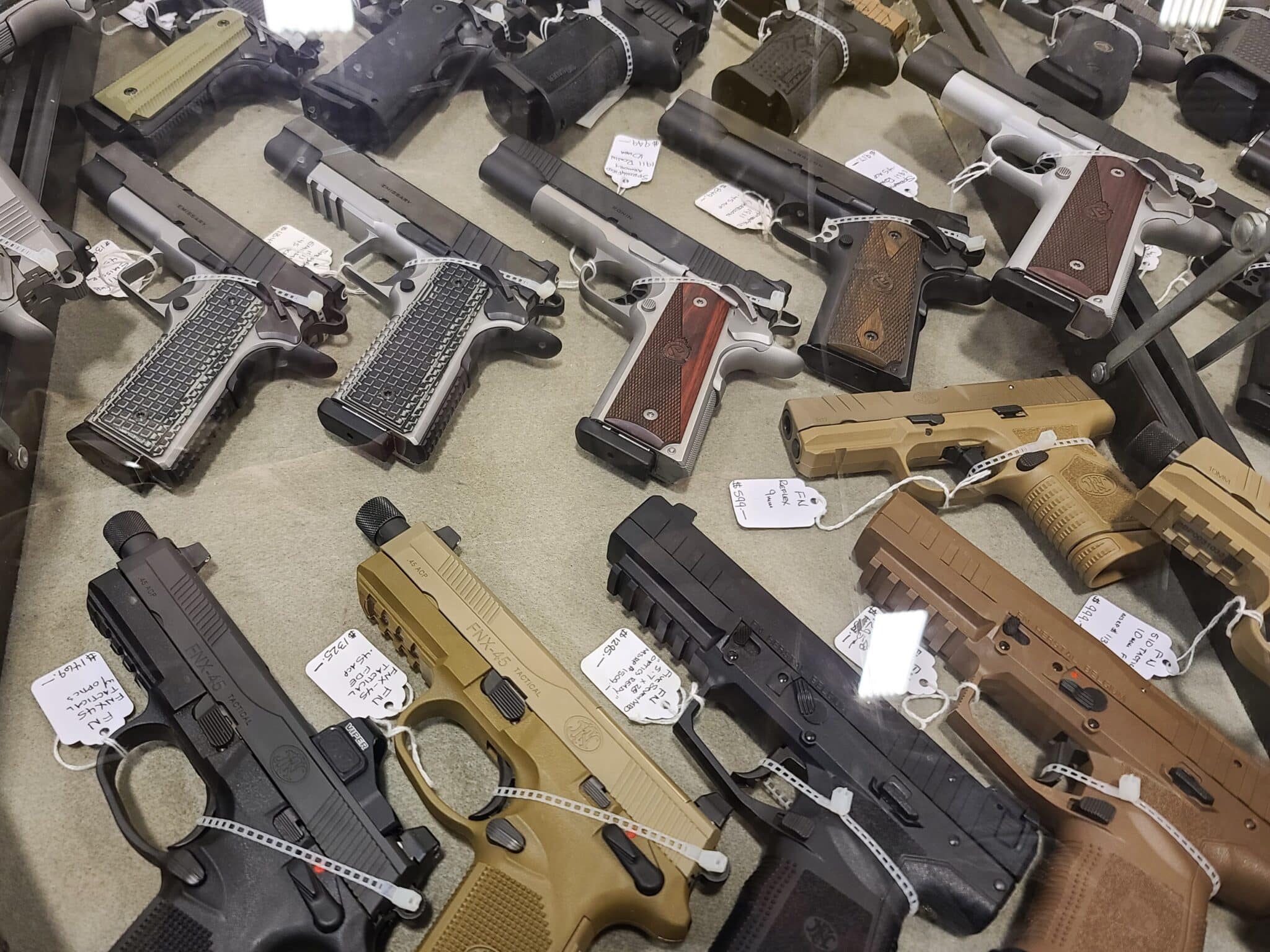
The Second Amendment protects people’s ability to own a gun even if they’ve entered the…
The Second Amendment protects people’s ability to own a gun even if they’ve entered the country illegally.
That’s the ruling handed down by US District Judge Sharon Johnson Coleman on Friday. She found the federal prohibition on illegal immigrants owning guns is unconstitutional, at least as applied to Heriberto Carbajal-Flores. She ruled the ban did not fit with America’s historical tradition of gun regulation as required under the Supreme Court’s landmark New York State Rifle and Pistol Association v. Bruen ruling.
“The noncitizen possession statute, 18 U.S.C. § 922(g)(5), violates the Second Amendment as applied to Carbajal-Flores,” Judge Colman wrote in US v. Carbajal-Flores. “Thus, the Court grants Carbajal-Flores’ motion to dismiss.”
The ruling is the latest fallout from the new standard for Second Amendment cases set in Bruen. Since the landmark case was decided in 2022, a wide swath of state and federal gun restrictions have come under increased scrutiny in the courts. Among the most commonly recurring questions raised by the new standard is who can be barred from owning guns, and the Carbajal-Flores case is among the first to examine whether people who entered the country illegally are among them.
Judge Coleman, a Barack Obama appointee, initially found the gun ban for illegal immigrants was constitutional back in April 2022. However, she agreed to reconsider the case in light of rulings from the federal appeals courts in the Third and Seventh Circuit that questioned whether those convicted of non-violent crimes could be permanently disarmed after the High Court handed down Bruen in June 2022. She concluded breaking misdemeanor immigration laws alone is not enough justification to strip somebody of their gun rights under the new test.
“[C]arbajal-Flores has never been convicted of a felony, a violent crime, or a crime involving the use of a weapon. Even in the present case, Carbajal-Flores contends that he received and used the handgun solely for self-protection and protection of property during a time of documented civil unrest in the Spring of 2020,” Judge Coleman wrote. “Additionally, Pretrial Service has confirmed that Carbajal-Flores has consistently adhered to and fulfilled all the stipulated conditions of his release, is gainfully employed, and has no new arrests or outstanding warrants.”
The Department of Justice (DOJ) argued the modern ban was akin to historical bans on loyalists owning guns during the Founding Era and should stand. However, Judge Coleman found that historical ban included exceptions that imply the ban was based on the actions of individual loyalists.
“The Court also determined that based on the government’s historical analogue, where exceptions were made that allowed formerly ‘untrustworthy’ British loyalists to possess weapons, the individuals who fell within the exception were determined to be non-violent during their individual assessments, permitting them to carry firearms,” she wrote. “Thus, to the extent the exception shows that some British loyalists were permitted to carry firearms despite the general prohibition, the Court interprets this history as supporting an individualized assessment for Section 922(g)(5) as this Court previously found with Section 922(g)(1).”
She said there was no reason to think Carbajal-Flores was dangerous. So, applying the ban to him did not follow historical tradition.
“The Court finds that Carbajal-Flores’ criminal record, containing no improper use of a weapon, as well as the non-violent circumstances of his arrest do not support a finding that he poses a risk to public safety such that he cannot be trusted to use a weapon responsibly and should be deprived of his Second Amendment right to bear arms in self-defense,” Judge Coleman wrote. “Thus, this Court finds that, as applied to Carbajal-Flores, Section 922(g)(5) is unconstitutional.”
The ruling deepens the divide in the lower courts over how to interpret historical gun laws and compare them to modern restrictions. Several courts have come down on either side of whether permanent federal prohibitions on gun ownership by groups of people convicted of varying crimes are constitutional. For example, in US v. Jackson, a three-judge panel for the Eighth Circuit upheld the same law at issue in US v. Carbajal-Flores. But the panel also foreclosed challenges to that law based on how it was applied to specific non-violent offenders.
“In sum, we conclude that legislatures traditionally employed status-based restrictions to disqualify categories of persons from possessing firearms,” Judge Steven Colloton, a George W. Bush appointee, wrote. “Whether those actions are best characterized as restrictions on persons who deviated from legal norms or persons who presented an unacceptable risk of dangerousness, Congress acted within the historical tradition when it enacted § 922(g)(1) and the prohibition on possession of firearms by felons.”…